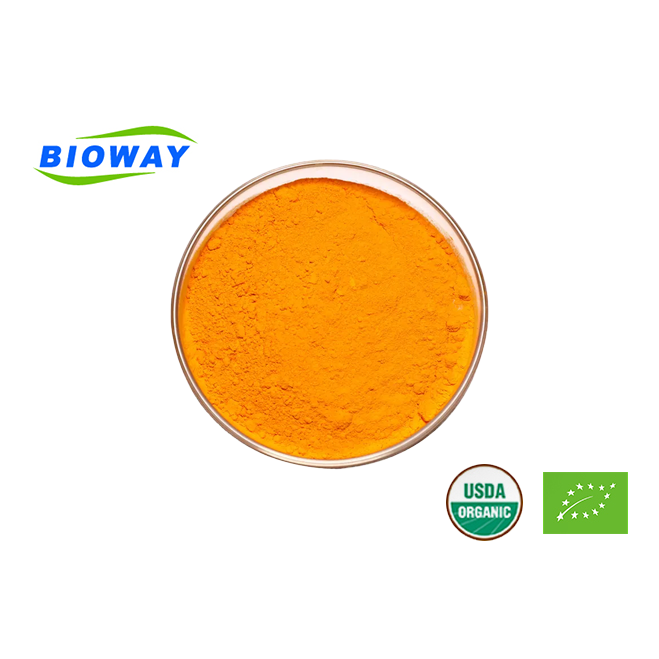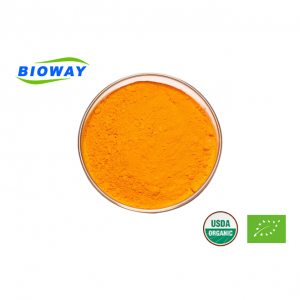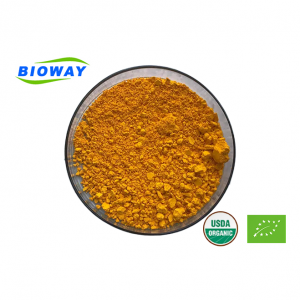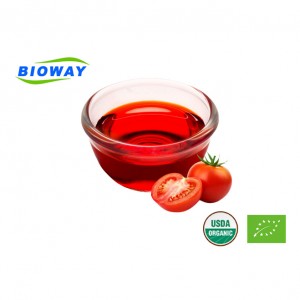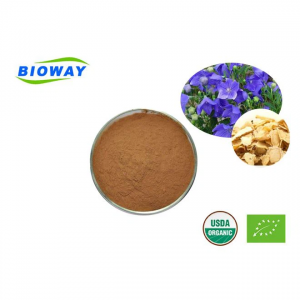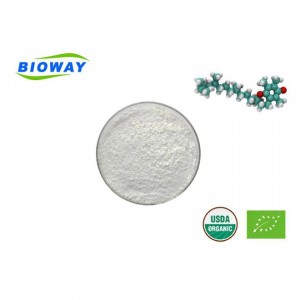Pure Riboflavin Powder (Vitamin B2)
Vitamin B2 powder, also known as riboflavin powder, is a dietary supplement that contains vitamin B2 in a powdered form. Vitamin B2 is one of the eight essential B vitamins that are necessary for the proper functioning of the body. It plays a crucial role in various bodily processes, including energy production, metabolism, and the maintenance of healthy skin, eyes, and nervous system.
Vitamin B2 powder is commonly used as a dietary supplement for individuals who may have a deficiency or need to increase their intake of vitamin B2. It is available in powdered form, which can be easily mixed into beverages or added to food. Vitamin B2 powder can also be encapsulated or used as an ingredient in the production of other nutritional products.
It's important to note that while vitamin B2 is generally considered safe and well-tolerated, it's always recommended to consult with a healthcare professional or nutritionist before starting any new supplementation regimen. They can determine the appropriate dosage and help address any specific health concerns or potential interactions with medications.
| Testing Items | Specifications | Results |
| Appearance | Orange-yellow crystalline powder | Meets |
| Identification | Intense yellowish-green fluorescence disappears upon the addition of mineral acids or alkalies | Meets |
| Particle Size | 95% pass 80 mesh | 100% passed |
| Bulk Density | Ca 400-500g/l | Meets |
| Specific Rotation | -115°~ -135° | -121° |
| Loss on Drying (105°for 2Hrs) | ≤1.5% | 0.3% |
| Residue on Ignition | ≤0.3% | 0.1% |
| Lumiflavin | ≤0.025 at 440nm | 0.001 |
| Heavy Metals | <10ppm | <10ppm |
| Lead | <1ppm | <1ppm |
| Assay (on a dried basis) | 98.0% ~ 102.0% | 98.4% |
| Total Plate Count | <1,000cfu/g | 238cfu/g |
| Yeast & Mold | <100cfu/g | 22cfu/g |
| Coliforms | <10cfu/g | 0cfu/g |
| E. Coli | Negative | Negative |
| Salmonella | Negative | Negative |
| Pseudomonas | Negative | Negative |
| S. Aureus | Negative | Negative |
Purity: High-quality riboflavin powder should have a high purity level, typically above 98%. This ensures that the product contains a minimal amount of impurities and is free from contaminants.
Pharmaceutical Grade: Look for riboflavin powder that is labeled as pharmaceutical or food grade. This indicates that the product has undergone strict quality control measures and is suitable for human consumption.
Water-Soluble: Riboflavin powder should easily dissolve in water, allowing for convenient use in various applications such as mixing it into beverages or adding it to food.
Odorless and Tasteless: A high-purity riboflavin powder should be odorless and have a neutral taste, allowing it to be easily incorporated into different recipes without altering the flavor.
Micronized Particle Size: Riboflavin powder particles should be micronized to ensure better solubility and absorption in the body. Smaller particles maximize the efficacy of the supplement.
Packaging: High-quality packaging is essential to protect the riboflavin powder from moisture, light, and air, which can degrade its quality. Look for products that are sealed in airtight containers, preferably with a moisture-absorbing desiccant.
Certifications: Trusted manufacturers often provide certifications indicating that their riboflavin powder meets strict quality standards. Look for certifications such as Good Manufacturing Practices (GMP) or third-party testing for purity and potency.
Energy Production: Vitamin B2 is involved in converting carbohydrates, fats, and proteins from food into energy. It helps support optimal energy metabolism and plays a crucial role in maintaining overall energy levels.
Antioxidant Activity: VB2 acts as an antioxidant, helping to neutralize harmful free radicals in the body. This can contribute to reducing oxidative stress and protecting cells from damage caused by free radicals.
Eye Health: It is essential for maintaining good vision and overall eye health. It can help prevent conditions like cataracts and age-related macular degeneration (AMD) by supporting the health of the cornea, lens, and retina.
Healthy Skin: It is important for maintaining healthy skin. It supports the growth and regeneration of skin cells and can help improve the appearance of the skin, reduce dryness, and promote a radiant complexion.
Neurological Function: It is involved in the synthesis of neurotransmitters that are essential for maintaining proper brain function and mental health. It may help support cognitive function and alleviate symptoms of conditions like migraines and depression.
Red Blood Cell Production: It is needed for the production of red blood cells, which are responsible for carrying oxygen throughout the body. Adequate riboflavin intake is important for preventing conditions like anemia.
Growth and Development: It plays a crucial role in growth, development, and reproduction. It is particularly important during periods of rapid growth, such as pregnancy, infancy, childhood, and adolescence.
Food and Beverage Industry: Vitamin B2 is often used as a food colorant, giving a yellow or orange color to products like dairy, cereal, confectionery, and beverages. It is also used as a nutritional supplement in fortifying foods.
Pharmaceutical Industry: Vitamin B2 is an essential nutrient for human health, and riboflavin powder is used as a dietary supplement in the form of capsules, tablets, or powders. It is also used in the production of various pharmaceutical products.
Animal Nutrition: It is added to animal feed to meet the nutritional requirements of livestock, poultry, and aquaculture. It helps promote growth, improve reproductive performance, and enhance overall health in animals.
Cosmetics and Personal Care Products: It can be found as an ingredient in skincare products, haircare products, and cosmetics. It may be used for its antioxidant properties or to enhance the color of the product.
Nutraceuticals and Dietary Supplements: It is commonly used in the manufacturing of nutraceuticals and dietary supplements due to its role in maintaining overall health and supporting various bodily functions.
Biotechnology and Cell Culture: It is utilized in biotechnological processes, including cell culture media formulations, as it serves as a necessary component for the growth and viability of cells.
1. Strain selection: Choose a suitable microorganism strain that has the capability to produce Vitamin B2 efficiently. Common strains used include Bacillus subtilis, Ashbya gossypii, and Candida famata.
2. Inoculum preparation: Inoculate the selected strain into a growth medium containing nutrients like glucose, ammonium salts, and minerals. This allows the microorganism to multiply and reach a sufficient biomass.
3. Fermentation: Transfer the inoculum into a larger fermentation vessel where the Vitamin B2 production takes place. Adjust the pH, temperature, and aeration to create optimal conditions for growth and Vitamin B2 production.
4. Production phase: During this phase, the microorganism will consume the nutrients in the medium and produce Vitamin B2 as a byproduct. The fermentation process can take several days to weeks, depending on the specific strain and conditions used.
5. Harvesting: Once the desired level of Vitamin B2 production is achieved, the fermentation broth is harvested. This can be done by separating the microorganism biomass from the liquid medium using techniques such as centrifugation or filtration.
6. Extraction and purification: The harvested biomass is then processed to extract the Vitamin B2. Various methods like solvent extraction or chromatography can be employed to separate and purify Vitamin B2 from other components present in the biomass.
7. Drying and formulation: The purified Vitamin B2 is typically dried to remove any remaining moisture and converted into a stable form such as a powder or granules. It can then be further processed into various formulations like tablets, capsules, or liquid solutions.
8. Quality control: Throughout the production process, rigorous quality control measures are implemented to ensure the final product meets the required standards for purity, potency, and safety.
Storage: Keep in a cool, dry, and clean place, Protect from moisture and direct light.
Bulk Package: 25kg/drum.
Lead Time: 7 days after your order.
Shelf Life: 2 years.
Remark: Customized specifications also can be achieved.

20kg/bag 500kg/pallet

Reinforced packaging

Logistics security
Express
Under 100kg, 3-5Days
Door to door service easy to pick up the goods
By Sea
Over300kg, Around 30 Days
Port to port service professional clearance broker needed
By Air
100kg-1000kg, 5-7Days
Airport to airport service professional clearance broker needed

Pure Riboflavin Powder (Vitamin B2) is certified with the NOP and EU organic, ISO certificate, HALAL certificate, and KOSHER certificate.

In the body, riboflavin powder (vitamin B2) plays a crucial role in various physiological processes. Here's how it works:
Energy Production: Riboflavin is a vital component of two coenzymes, flavin adenine dinucleotide (FAD) and flavin mononucleotide (FMN). These coenzymes participate in energy-producing metabolic pathways, such as the citric acid cycle (Krebs cycle) and the electron transport chain. FAD and FMN assist in the conversion of carbohydrates, fats, and proteins into usable energy for the body.
Antioxidant Activity: Riboflavin powder acts as an antioxidant, meaning it helps protect cells from damage caused by free radicals. The coenzymes FAD and FMN work in conjunction with other antioxidant systems in the body, such as glutathione and vitamin E, to neutralize free radicals and prevent oxidative stress.
Red Blood Cell Formation: Riboflavin is essential for the production of red blood cells and the synthesis of hemoglobin, the protein responsible for carrying oxygen throughout the body. It helps maintain adequate levels of red blood cells, thus preventing conditions like anemia.
Healthy Skin and Vision: Riboflavin is involved in the maintenance of healthy skin, eyes, and mucous membranes. It contributes to the production of collagen, a protein that supports skin structure, and supports the function of the cornea and lens of the eye.
Nervous System Function: Riboflavin plays a role in the proper functioning of the nervous system. It assists in the production of certain neurotransmitters, such as serotonin and norepinephrine, which are important for mood regulation, sleep, and overall cognitive function.
Hormone Synthesis: Riboflavin is involved in the synthesis of various hormones, including adrenal hormones and thyroid hormones, which are essential for maintaining hormonal balance and overall health.
It's important to maintain an adequate dietary intake of riboflavin to support these critical functions in the body. Riboflavin-rich food sources include dairy products, meat, eggs, legumes, leafy greens, and fortified cereals. In cases where dietary intake is insufficient, riboflavin supplements or products containing riboflavin powder can be used to ensure adequate levels of this essential nutrient.





